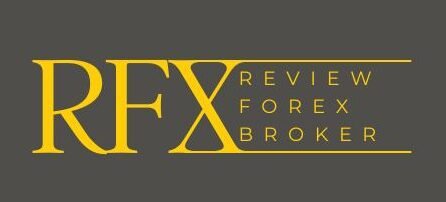The Forex market is a vast, dynamic space that attracts traders from all over the world. For traders in the United States, choosing a US-regulated Forex broker is a crucial step toward ensuring a secure and transparent trading environment. Regulatory oversight helps protect traders by enforcing strict standards for broker conduct, safeguarding against fraud, and ensuring fair market practices.
In this blog, we’ll explore what US regulation means for Forex brokers, the key benefits of trading with a US-regulated broker, and what you need to consider before opening an account.
What is a US-Regulated Forex Broker?
A US-regulated Forex broker is a brokerage firm that operates under the regulatory oversight of US government agencies, primarily the Commodity Futures Trading Commission (CFTC) and the National Futures Association (NFA). These agencies ensure that brokers comply with the laws, regulations, and standards designed to protect the interests of retail traders and maintain the integrity of the market.
Key Regulatory Bodies for Forex Brokers in the US
- Commodity Futures Trading Commission (CFTC)
The CFTC is an independent government agency that regulates and oversees the futures and Forex markets in the United States. It ensures that brokers comply with market rules and protects traders from fraudulent activities. - National Futures Association (NFA)
The NFA is a self-regulatory organization for the futures industry in the US. It works alongside the CFTC to regulate Forex brokers, ensuring they meet high standards for financial integrity, transparency, and fairness.
Benefits of Trading with a US-Regulated Forex Broker
1. Enhanced Security and Transparency
US-regulated Forex brokers are required to follow strict guidelines that protect customer funds and ensure transparency in their operations. Some of the key requirements include:
- Segregated Accounts: US brokers are required to hold customer funds in separate accounts from the company’s operational funds. This ensures that your money is protected in case the broker faces financial difficulties.
- Financial Reporting: US-regulated brokers must provide regular financial reports and audits, offering transparency in their operations and ensuring that they are financially stable and operating with integrity.
By trading with a US-regulated broker, you can be more confident that the broker is held to high standards of transparency and financial security.
2. Compliance with Strict Rules
US-regulated brokers are subject to comprehensive regulations that enforce ethical conduct, fair practices, and legal obligations. Some of these regulations include:
- Leverage Limits: In line with CFTC guidelines, brokers can only offer limited leverage to retail Forex traders. Typically, this is restricted to 50:1 for major currency pairs. This helps reduce the risk of over-leveraging and protects traders from excessive losses.
- Risk Disclosure: Brokers are required to disclose all risks associated with Forex trading to ensure that traders fully understand the potential consequences before opening positions.
These rules are designed to create a safer, more regulated trading environment, reducing the likelihood of fraud or misconduct.
3. Protection Against Fraud and Mismanagement
One of the most significant risks in the Forex market is fraud. With US-regulated brokers, you gain access to protections that help minimize the chances of falling victim to scams or unethical practices. The NFA and CFTC impose rules that prevent brokers from engaging in fraudulent activities, such as:
- Misuse of Client Funds: US-regulated brokers cannot use clients’ funds for their own purposes, ensuring that your capital remains protected.
- Clear Contractual Obligations: Brokers must provide clear terms of service, including detailed agreements outlining fees, commissions, and other charges.
Additionally, brokers are required to resolve disputes through established processes, making it easier to address issues and complaints in a regulated environment.
4. Access to a Secure Trading Platform
US-regulated Forex brokers are required to offer secure and reliable trading platforms for their clients. These platforms must meet industry standards in terms of functionality, security, and ease of use. Brokers must implement:
- Advanced Encryption: US brokers use robust encryption technology to protect your personal and financial data from hackers and unauthorized access.
- Robust Trading Tools: US-regulated brokers offer access to professional-grade trading tools, charting software, and technical indicators that can enhance your trading experience.
What to Consider When Choosing a US-Regulated Forex Broker
While trading with a US-regulated Forex broker has many benefits, it’s important to carefully evaluate your options. Here are key factors to consider before selecting a broker:
1. Account Types and Minimum Deposits
US-regulated Forex brokers typically offer various types of accounts, including standard accounts, mini accounts, and managed accounts. Each account type may have different minimum deposit requirements, trading conditions, and commissions.
Things to look for:
- Minimum Deposit: Ensure that the broker’s minimum deposit requirement aligns with your trading budget.
- Account Features: Compare account features, including spreads, commissions, and leverage options, to find the best fit for your trading style.
2. Trading Platforms and Tools
The trading platform is the most important tool for a Forex trader, so choosing a broker that offers a reliable and user-friendly platform is essential. Many US-regulated brokers provide access to popular platforms like MetaTrader 4 (MT4), MetaTrader 5 (MT5), or proprietary platforms designed for advanced charting and order execution.
Things to look for:
- Platform Compatibility: Ensure the broker’s platform works with your device and operating system (PC, Mac, mobile, or web).
- Risk Management Features: Look for brokers that provide essential risk management tools, such as stop-loss orders, take-profit orders, and margin alerts.
3. Trading Costs and Fees
US-regulated Forex brokers must disclose all fees and charges associated with their trading services. These may include spreads, commissions, overnight financing fees (swap rates), and withdrawal fees. It’s important to assess these costs to ensure they fit with your trading strategy and budget.
Things to look for:
- Competitive Spreads: Compare the spreads offered by different brokers to find the most competitive rates.
- Additional Fees: Be aware of other costs, such as withdrawal and inactivity fees, which can add up over time.
4. Customer Service and Support
A reliable customer support team is essential when trading in the Forex market. Make sure the broker you choose offers timely and responsive customer service to address any issues that may arise.
Things to look for:
- Support Channels: Ensure the broker provides multiple support channels, including phone, email, and live chat.
- Trading Hours: Look for brokers that offer 24/5 support to accommodate global trading hours.
Conclusion
Choosing a US-regulated Forex broker offers a range of benefits, from enhanced security and transparency to protection against fraud. By trading with a regulated broker, you gain access to a safe and transparent trading environment where your funds are better protected, and ethical standards are enforced.
However, it’s important to carefully assess the broker’s offerings, including account types, trading platforms, fees, and customer support, to ensure they align with your trading goals and style. By selecting a US-regulated broker, you can trade with confidence, knowing that your trading experience is supported by stringent regulations designed to protect your interests.

